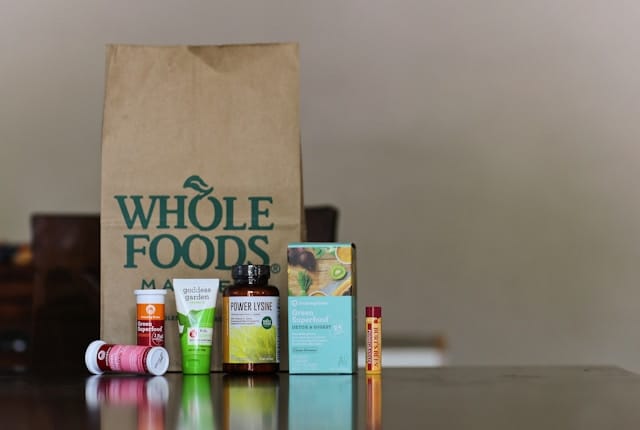Nutrients are the building blocks of our health, helping every cell, tissue, and organ function correctly. When our bodies don’t get enough of the essential vitamins, minerals, and nutrients they need, certain signs begin to show up. In this guide, we’ll cover the signs of nutrient deficiencies and how to recognize them early to keep your body in balance.
Why Nutrients Are Important
Nutrients are vital for energy, immunity, brain function, and overall well-being. They support growth, repair tissues, and allow chemical reactions that keep our bodies functioning smoothly. When nutrient levels are low, these processes can slow down or halt, leading to noticeable symptoms and potentially serious health issues if not addressed.
Common Signs of Nutrient Deficiencies
Let’s dive into some common nutrient deficiencies, what they mean, and the signs your body may show.
1. Iron Deficiency
Iron is essential for producing hemoglobin, the protein in red blood cells that carries oxygen throughout the body. Low iron levels can lead to iron deficiency anemia, one of the most common nutrient deficiencies globally.
Signs of Iron Deficiency
- Fatigue: Low iron means your body struggles to transport oxygen, causing tiredness.
- Pale Skin: Less hemoglobin can lead to paleness, especially in the face and under the nails.
- Shortness of Breath: With low iron, you may feel out of breath easily.
- Brittle Nails and Hair Loss: Iron-deficient cells have trouble supporting hair and nails, leading to brittleness.
How to Boost Iron Levels
Incorporate iron-rich foods like red meat, beans, spinach, and fortified cereals. Vitamin C also helps improve iron absorption, so pair iron-rich foods with foods high in vitamin C, like oranges or bell peppers.
2. Vitamin D Deficiency
Vitamin D plays a major role in bone health, mood regulation, and immune function. Without enough sunlight exposure, vitamin D levels can drop, especially during winter months.
Signs of Vitamin D Deficiency
- Weak Bones: Bones become fragile and are more prone to fractures.
- Mood Changes: Low vitamin D is linked with mood swings, irritability, and even depression.
- Muscle Weakness: You might feel physically weak or tire quickly after physical activities.
How to Boost Vitamin D Levels
Try spending 15-30 minutes in the sunlight each day, especially early in the morning. Foods like fatty fish, mushrooms, and fortified dairy products also provide vitamin D. If needed, consider supplements after consulting your healthcare provider.
3. Vitamin B12 Deficiency
Vitamin B12 is essential for nerve health, red blood cell production, and DNA synthesis. Deficiency in B12 is common, especially among vegans or vegetarians since it’s primarily found in animal products.
Signs of Vitamin B12 Deficiency
- Numbness or Tingling: You may feel “pins and needles” sensations in your hands or feet.
- Memory Issues: Difficulty remembering things or experiencing brain fog can be signs of a B12 deficiency.
- Anemia: Similar to iron deficiency, B12 deficiency can also cause anemia, leading to fatigue and weakness.
How to Boost Vitamin B12 Levels
Eat foods rich in B12, like eggs, dairy, meat, and fish. Vegans can consider B12-fortified foods or supplements.
4. Calcium Deficiency
Calcium is crucial for bone strength, muscle function, and nerve transmission. Low calcium levels can increase the risk of bone fractures and osteoporosis.
Signs of Calcium Deficiency
- Muscle Cramps and Spasms: Low calcium can cause cramps, especially in the legs.
- Weak Bones: Frequent fractures or breaks could indicate low calcium.
- Tooth Decay: Calcium also strengthens teeth, so decay may be a sign of deficiency.
How to Boost Calcium Levels
Include calcium-rich foods like dairy products, leafy green vegetables, almonds, and tofu in your diet.
5. Magnesium Deficiency
Magnesium is a critical mineral involved in muscle relaxation, sleep, and energy production. It’s also important for nerve function and heart health.
Signs of Magnesium Deficiency
- Muscle Cramps and Spasms: Magnesium deficiency can cause twitching and cramps.
- Sleep Issues: Difficulty falling asleep or staying asleep can result from low magnesium.
- Mood Changes: Anxiety and irritability are also linked with magnesium deficiency.
How to Boost Magnesium Levels
Eat more nuts, seeds, whole grains, and green leafy vegetables. Magnesium supplements can also help, especially if your levels are significantly low.
6. Vitamin C Deficiency
Vitamin C is essential for immune function, skin health, and the absorption of iron from plant sources. Since our bodies can’t produce it, we must get it from food.
Signs of Vitamin C Deficiency
- Weak Immune System: Frequent colds and infections may indicate a low vitamin C level.
- Skin Problems: Dry, scaly skin, and slow-healing wounds are common signs of vitamin C deficiency.
- Swollen Gums: Gums may bleed easily, especially while brushing.
How to Boost Vitamin C Levels
Citrus fruits, berries, bell peppers, and broccoli are high in vitamin C. Add these to your diet to help meet your daily needs.
7. Iodine Deficiency
Iodine is vital for thyroid function, which regulates growth and metabolism. Iodine deficiency can lead to hypothyroidism, a condition where the thyroid gland doesn’t produce enough hormones.
Signs of Iodine Deficiency
- Swollen Neck: Goiter, an enlarged thyroid gland, can cause a visible swelling in the neck.
- Fatigue and Weakness: Low iodine affects thyroid hormones, which play a role in energy production.
- Weight Gain: Slow metabolism due to low iodine can lead to unexplained weight gain.
How to Boost Iodine Levels
Consume iodized salt, seafood, dairy products, and eggs to maintain adequate iodine levels.
8. Zinc Deficiency
Zinc is essential for immune health, wound healing, and protein synthesis. It’s also important for taste and smell.
Signs of Zinc Deficiency
- Frequent Infections: Low zinc weakens the immune system, increasing susceptibility to illness.
- Slow Wound Healing: Cuts and scrapes take longer to heal with low zinc levels.
- Loss of Taste and Smell: Zinc deficiency can reduce sensitivity to taste and smell.
How to Boost Zinc Levels
Eat foods like meat, shellfish, dairy, seeds, and whole grains. Zinc supplements may be beneficial if dietary intake is insufficient.
9. Folate (Vitamin B9) Deficiency
Folate is a B vitamin important for DNA synthesis and cell division, making it essential during pregnancy and periods of rapid growth.
Signs of Folate Deficiency
- Anemia: Similar to B12, folate deficiency can lead to anemia, causing fatigue and weakness.
- Mouth Sores: Painful sores in the mouth or on the tongue may indicate a folate deficiency.
- Poor Growth: In children, folate deficiency can lead to growth delays and developmental issues.
How to Boost Folate Levels
Leafy greens, beans, and fortified grains are good sources of folate. Consider a supplement if recommended by your doctor, especially during pregnancy.
10. Omega-3 Fatty Acid Deficiency
Omega-3 fatty acids support brain health, reduce inflammation, and promote heart health.
Signs of Omega-3 Deficiency
- Dry Skin: Omega-3s help keep skin hydrated, so deficiency can lead to dryness.
- Mood Issues: Anxiety and depression can sometimes improve with adequate omega-3 intake.
- Joint Pain: Omega-3s reduce inflammation, so deficiency might cause joint pain.
How to Boost Omega-3 Levels
Incorporate fatty fish like salmon, walnuts, chia seeds, and flaxseeds into your diet. Fish oil supplements are also an option for boosting omega-3 levels.
Listening to Your Body
Noticing signs of nutrient deficiencies can help you make early changes to your diet and lifestyle. It’s always wise to consult with a healthcare provider for accurate testing and guidance, especially if you’re experiencing severe or persistent symptoms. Eating a balanced, varied diet rich in whole foods is the best way to prevent deficiencies and maintain optimal health.


